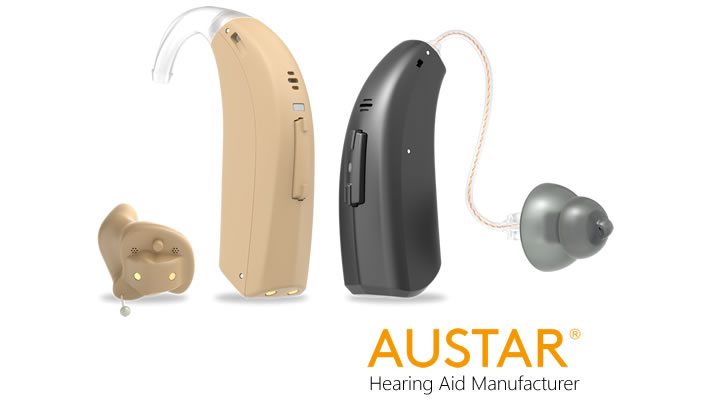- Home
- Hearing Loss
- Hearing Aid Use And Care
The ultimate guide on how to choose hearing aids for seniors
2025-06-12When the elderly come to choose hearing aids, we need to consider them comprehensively from multiple aspects to ensure that they can get the hearing aids that are most suitable for them and improve their quality of life. For this reason, AUSTAR Hearing has compiled an ultimate guide to choosing hearing aids for the elderly, hoping to help our customers.
First, we need to judge according to the user's hearing loss. If the hearing loss is mild, it is not advisable to choose a high-power hearing aid to avoid the sound being too loud and causing discomfort, especially when listening to loud sounds. If the hearing loss is severe, you cannot choose a low-power hearing aid, otherwise it may not meet their hearing needs, and the hearing aid gain may not be able to improve the user much when it reaches the full-speed gain level. At the same time, the hearing aid continues to work at the full-speed gain level, which is very likely to cause sound distortion, blur or howling, affecting speech clarity.

Second, we need to consider the user's hearing needs. Understand the daily activity scenarios of the elderly, such as whether they often go out and whether they need to use hearing aids in noisy environments. If the elderly often move in noisy environments, it is recommended to choose a hearing aid with powerful noise reduction function. In addition, if the elderly need to use the phone or listen to music frequently, they can choose hearing aids with Bluetooth function to facilitate connection to smart devices.

Third, the style of hearing aids is also important. Behind-the-ear hearing aids are large in size, but easy to operate, and suitable for elderly people with poor hand dexterity. At the same time, if the user has otitis media or external otitis, it is recommended to wear behind-the-ear hearing aids, which are more comfortable and not easy to damage the hearing aids when pus and water flow. In-ear hearing aids are small in size and highly concealed, suitable for elderly people who pay attention to appearance and those who pursue high concealment and comfort. In addition, choosing hearing aids with high concealment and comfortable wearing can reduce psychological pressure. Ensuring that the appearance of hearing aids does not embarrass the elderly will help improve their social acceptance.
Fourth, the convenience of operation should not be ignored. Choose hearing aids with simple operation, such as large buttons, clear function labels, and one-button operation functions, which are convenient for the elderly to adjust the volume and switch programs in daily life. Some high-end hearing aids also support Bluetooth wireless connection, which can be connected to mobile phones or other devices to improve the clarity and fluency of listening to songs and making calls when wearing hearing aids, and bring users more personalized setting options.
Fifth, in terms of functional requirements, the noise reduction function can help the elderly better distinguish human voices in noisy environments and improve clarity. Hearing aids not only need to amplify the sound, but also ensure the clarity of the sound and avoid distortion. The multi-channel processing function can make the hearing aid process the sound segmentation more refined, and can amplify or attenuate the sound of different frequencies in a targeted manner, so as to better meet the hearing needs of the elderly.
Finally, consider the budget and after-sales service. Comprehensively consider product performance, quality and after-sales, and choose a reasonably priced hearing aid to avoid blindly pursuing high prices or choosing low-priced and low-quality products. Choose a brand or merchant with perfect after-sales service to ensure that the elderly can get support at any time during use.
By comprehensively considering the above factors, we can choose the most suitable hearing aids for the elderly, help them better adapt to hearing loss, and improve their quality of life.
AUSTAR Hearing: Trusted Hearing Aid Manufacturer for 20+ Years
Partner with AUSTAR Hearing, a leading hearing aid manufacturer in China. Over 20 years of experience and FDA, CE1639, and ISO13485 certifications. High-quality hearing aids for your business.
Latest
- 4 Essential Communication Rules for Family Members of Hearing Aid Users
- Hearing Aid "Break-In Period": Say Goodbye to Discomfort, Hello to Clear Sound
- The ultimate guide on how to choose hearing aids for seniors
- In addition to performance, how do parents choose children's hearing aids?
- Hearing Care Professional: How Do You Maintain Your Hearing Aids Regularly?
Hearing Aid Use And Care













All 0 comments